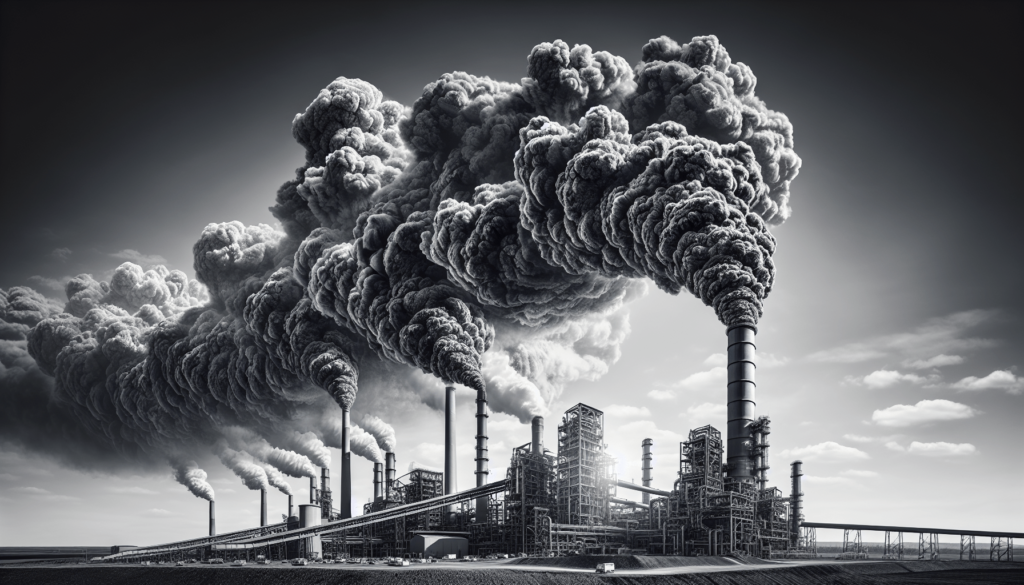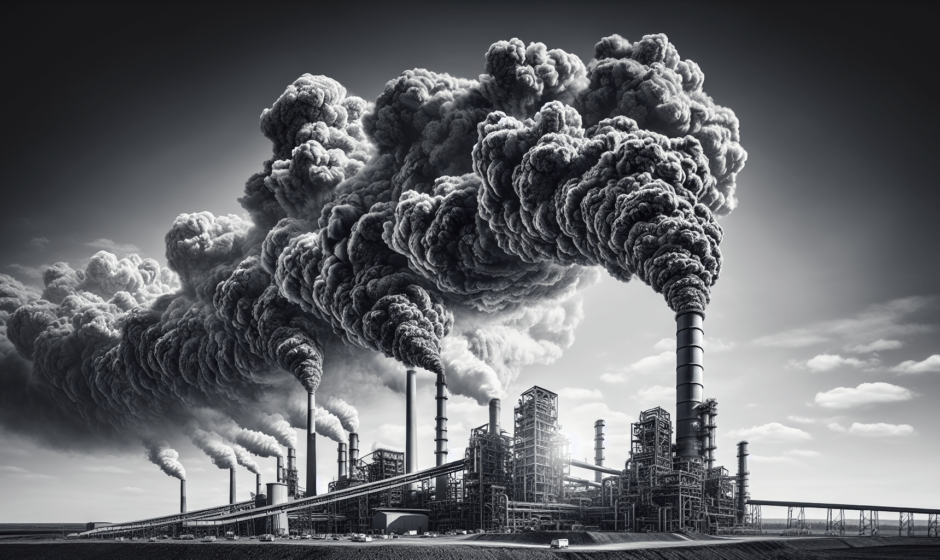The Challenges of Achieving Net-Zero Carbon Emissions
Have you ever wondered about the challenges and solutions involved in achieving net-zero carbon emissions by 2050? This goal, set by many countries and organizations, presents a significant challenge that requires cooperation and innovation from all sectors of society. Let’s explore the various obstacles we face on the path to a sustainable future.

The Impact of Fossil Fuels
You may already know that fossil fuels, such as coal, oil, and natural gas, are major contributors to greenhouse gas emissions. The burning of these fossil fuels releases carbon dioxide and other pollutants into the atmosphere, leading to climate change. Transitioning away from fossil fuels is crucial in achieving net-zero carbon emissions.
Renewable Energy Sources
One solution to the challenge posed by fossil fuels is the adoption of renewable energy sources. Renewables, such as solar, wind, and hydropower, produce electricity without emitting greenhouse gases. By investing in renewable energy infrastructure, we can reduce our reliance on fossil fuels and move closer to achieving net-zero carbon emissions.

Energy Efficiency and Conservation
Another important aspect of reducing carbon emissions is improving energy efficiency and promoting conservation. Energy-efficient technologies and practices can help us lower our overall energy consumption, thus reducing our carbon footprint. Simple actions, such as turning off lights when not in use and insulating buildings, can make a big difference in our efforts to achieve net-zero emissions.
Transportation Transformation
The transportation sector is a significant contributor to carbon emissions, mainly due to the reliance on fossil fuel-powered vehicles. Transitioning to electric vehicles, expanding public transportation systems, and promoting active transportation modes like walking and cycling are essential steps in reducing emissions from transportation. Innovations in clean fuel technologies and transportation infrastructure are also crucial in achieving net-zero carbon emissions.

Challenges in Agriculture and Land Use
Agriculture and land use also play a significant role in greenhouse gas emissions. Practices such as deforestation, monocropping, and excessive use of fertilizers contribute to carbon emissions and other environmental issues. Sustainable agriculture practices, reforestation efforts, and land use planning can help mitigate these challenges and move us closer to net-zero carbon emissions.
The Role of Industry
The industrial sector is a major contributor to carbon emissions, due to processes like manufacturing, energy production, and waste management. Implementing cleaner production methods, using renewable energy sources, and improving waste management practices can help reduce emissions from the industry. Collaboration between governments, businesses, and consumers is critical in addressing the challenges faced by the industrial sector in achieving net-zero carbon emissions.

The Importance of Carbon Capture and Storage
Carbon capture and storage (CCS) technologies play a crucial role in achieving net-zero carbon emissions. These technologies capture carbon dioxide emissions from sources like power plants and industrial facilities, preventing them from entering the atmosphere. The captured carbon dioxide is then stored underground or used in various industrial processes. Investing in and scaling up CCS technologies is essential in our transition to a low-carbon future.
Overcoming Political and Economic Barriers
Achieving net-zero carbon emissions also requires overcoming political and economic barriers. Governments must implement supportive policies, regulations, and incentives to encourage the adoption of clean technologies and practices. Businesses need to prioritize sustainability and invest in green solutions. Consumers play a vital role in demanding sustainable products and supporting companies committed to reducing emissions. Overcoming these barriers will require collaboration and cooperation at all levels of society.

The Need for International Cooperation
Given the global nature of climate change, achieving net-zero carbon emissions requires international cooperation and coordination. Countries must work together to set ambitious goals, share best practices, and support each other in transitioning to a low-carbon economy. International agreements like the Paris Agreement provide a framework for collective action on climate change, emphasizing the importance of multilateral cooperation in achieving our climate goals.
In conclusion, achieving net-zero carbon emissions by 2050 is a complex and challenging task that requires a united effort from all sectors of society. By transitioning to renewable energy sources, improving energy efficiency, transforming transportation systems, adopting sustainable practices in agriculture and industry, investing in carbon capture and storage technologies, and overcoming political and economic barriers, we can work towards a sustainable and resilient future. Your individual actions, along with collective efforts, can make a significant impact in achieving this critical goal for the planet.




